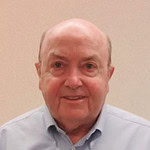Women farmers embrace organic fertilizer production in Samoa

The Samoa Women’s Association of Growers (SWAG) recently conducted a workshop on organic composting and fertilizer production, which took place at the Scientific Research Organisation of Samoa Conference Centre in Papauta on June 7, 2024. The session drew attention to the significant benefits of organic fertilizers in sustainable agriculture, emphasizing improvements in soil health, plant fertility, and environmental safety.
The workshop featured a presentation on biogas production through anaerobic digestion. This eco-friendly process converts organic waste into a renewable energy source while producing digestate, a nutrient-rich byproduct. This process plays a critical role in enhancing soil health, supporting a circular economy, reducing erosion, and cutting methane emissions.
The economic advantages of using organic compost were also discussed, including potential income from the sale of compost and savings on energy costs. Social benefits highlighted during the session include the promotion of biodiversity, long-term productivity, and effective waste management through principles of regenerative agriculture.
The training introduced participants to natural fertilizer components such as phosphorus, nitrogen, magnesium, and potassium, which are essential for plant health and are released into the soil by microorganisms. This natural breakdown process not only enriches the soil but also increases its microbial activity, thereby improving soil structure and plant resistance to diseases and pests.
A notable innovation presented at the workshop was the ‘Nafanua Fertilizer,’ developed by SROS and currently under further research and testing in collaboration with the Ministry of Agriculture. Although this product is not yet commercially available, it represents a forward step in the local production of organic fertilizers.
The workshop, which was attended by over thirty participants, included practical sessions where attendees learned to create their own compost and liquid fertilizers using everyday organic waste. Feedback from the participants, including Oka Tapusoa from Savaii, highlighted the importance and cost-effectiveness of the training.
Angelika Tugaga, a scientist with SROS, emphasized the need for additional research and funding to continue such workshops, which are crucial for educating local farmers about sustainable practices.
Enjoyed this story?
Every Monday, our subscribers get their hands on a digest of the most trending agriculture news. You can join them too!















Discussion0 comments